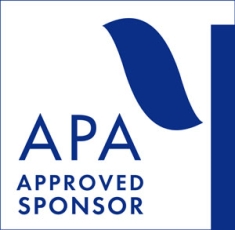Prescription Opioid Use, Addiction, and Its Treatment: A Brief Digest for Psychologists
ON-DEMAND ARTICLE
Author: Arnold M. Washton, Ph.D.
Instructional Level: Introductory
1 CE credit for psychologists
**This webinar fulfills the NJ psychologist CE requirement on opioid addiction**
Duration: 1 hour
Price: $25
Description
This article provides practicing psychologists with an overview of the ongoing epidemic of prescription opioid use, the pharmacology of opioids, and evidence-based pharmacological and behavioral treatments for opioid use disorders. Practicing psychologists have key roles to play in responding to the opioid crisis. These include but are not limited to providing behavioral interventions that support patient compliance with front-line medications as well as evidence-based psychosocial therapies that enhance coping skills, prevent relapse, and address underlying and co-occurring conditions such as anxiety, depression, and post-traumatic stress disorders.
Learning Objectives
After studying the material in this article, readers will be able to:
- List major trends that have contributed to the emergence of the current opioid epidemic
- Compare the pharmacological actions of opioid agonists vs. antagonists
- Describe the subjective and physiological effects of opioids that contribute to their high addiction potential
- List the most effective medications for treating opioid use disorders and clinical indications for their use
- Summarize current evidence-based psychosocial treatments for opioid use disorders
Author
Arnold M. Washton, Ph.D., is a licensed psychologist (NJ License No. 35S100357400) and book author specializing in the treatment of substance use and other behavioral health problems since 1975. Together with his psychologist wife, Dr. Lori Washton, he is in full-time private practice at The Washton Group, located both in Princeton, NJ and New York City. Dr. Washton has served as a Clinical Professor of Psychiatry at NYU School of Medicine, as director of several nationally recognized addiction treatment programs, and as a consultant to professional sports teams, government agencies, media organizations, and major corporations. He has been a recipient of research grants from the National Institute on Drug Abuse and has served as substance abuse advisor to the U.S. Food and Drug Administration, special committees of the U.S. Senate and House of Representatives, and the American Psychological Association. Dr. Washton has authored numerous journal articles and several books, including "Treating Alcohol and Drug Problems in Psychotherapy Practice: Doing What Works" (Guilford Press) and “Willpower’s Not Enough: Understanding and Recovering From Addictions of Every Kind” (Harper-Collins).
Dr. Washton does not have any conflicts of interest for this program.
Contact Us
For questions, please contact: ce@gsapp.rutgers.edu or call (848) 445-3577
Continuing Education Information
Rutgers Graduate School of Applied and Professional Psychology (GSAPP) is recognized by the New York State Education Department's State Board for Psychology as an approved provider of continuing education for licensed psychologists #PSY-0123.

Rutgers Graduate School of Applied & Professional Psychology is approved by the American Psychological Association to sponsor continuing education for psychologists. Rutgers Graduate School of Applied & Professional Psychology maintains responsibility for this program and its content.